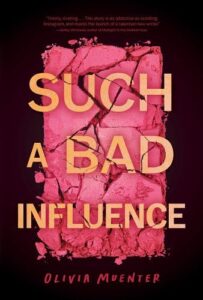For a long time, if someone would have asked me how I decide which parts of my life and work to share on the internet, I would have responded with a shrug. I don’t think about it too much, I might have said, or maybe: I just try to be honest. I genuinely thought I was telling the truth. By the time I graduated from college and started my first job as a fashion editor, sharing snippets of my day and thoughts via Instagram was second-nature, something I did without thinking much about it at all. Or at least that’s what I would have said. The truth, though, is that for most of my 10+ years sharing online, every post and Instagram story and video was filtered through a very specific lens. Is this real enough? I would ask myself before posting. Is this relatable enough?
Article continues below
I entered adulthood in a time when influencers were first entering the spotlight and the most insightful thing experts seemed to be able to say about social media is that the perceived perfection of it all was an illusion. We were all looking at a highlight reel and interpreting it as the whole picture of someone’s life. It’s why we were depressed, insecure, and anxious. I never wanted to be part of that. If I was going to share, I would share it all, I decided. For years, this served me well. I built a small, supportive audience. The worst thing I could imagine someone saying about what I posted is that it wasn’t real at all. That it was forced or fake. That I was. And so, I posted every off-the-cuff, silly story and every unfiltered bathing suit photo with the knowledge that yes, it was me — my personality, my body, my honest perspective — but also that it was a puzzle piece of a larger image. I lived for the high of someone telling me that I was the only “real” influencer they followed. I got a rush of adrenaline every time someone commented “this is why I follow you” or “so relatable.” I felt like I was being rewarded for being myself, for being brave enough to be honest in a world of fake influencers with faces and bodies and lives FaceTuned into oblivion. I would never look like that, I thought, so at least I had this. I could be relatable. I could be funny. I could be myself, or at least a version of it. Every tiny moment and every photo I shared was a single brushstroke in the portrait I was painting of someone who was relatable and honest. I would choose every color and then step back and admire it proudly, making the same mistake as everyone else. I confused it with the real thing.
The truth I know now is that the internet only facilitates performance. Everyone is an unreliable narrator. You can perform perfection, presenting a highlight reel to the world, and you can perform imperfection or authenticity in the very same way. Neither option is real. Neither option is you or me. These days, I approach social media with three “rules” in mind: I am honest, I am kind, and it is not in my power to make every person believe either of those things. It’s a conclusion I largely came to during the process of writing my debut novel Such a Bad Influence, a story about a child influencer who grows up (online) and then goes missing as an adult. As both a reader and a writer, I’ve always been drawn to psychological thrillers and the way they allow for an exploration of ugly and uncomfortable truths. The more I wrote about how to navigate social media as both a creator and a consumer, the more I realized the hypocrisy inherent in existing online. I began to accept that maybe I was just as unreliable a narrator in my own, very “real” internet presence as anyone else. I finally stopped trying to win at authenticity.
It can feel a bit cynical, maybe, to boil down the entirety of the internet as fake or forced. Depressing, maybe. But for me, there’s been a kind of freedom in realizing that I can never be real enough on the internet. I know now that there is no protection that comes from baring your soul online and buffing away the rough edges, molding yourself into something hyperpalatable. I know now that if anyone says the person they are on Instagram or TikTok is the real, true, unedited them, then they’re lying. I don’t expect anyone to be the same person in real life than they are online. I look for validation in different places. When you know that you can’t curate a better, funnier, more likable version of yourself no matter how hard you try, it feels a little bit like meeting yourself for the first time. And the only person who has to believe they’re honest or real or likable is you.
***
#Internet #Unreliable #Narrators #CrimeReads,
#Internet #Unreliable #Narrators #CrimeReads



